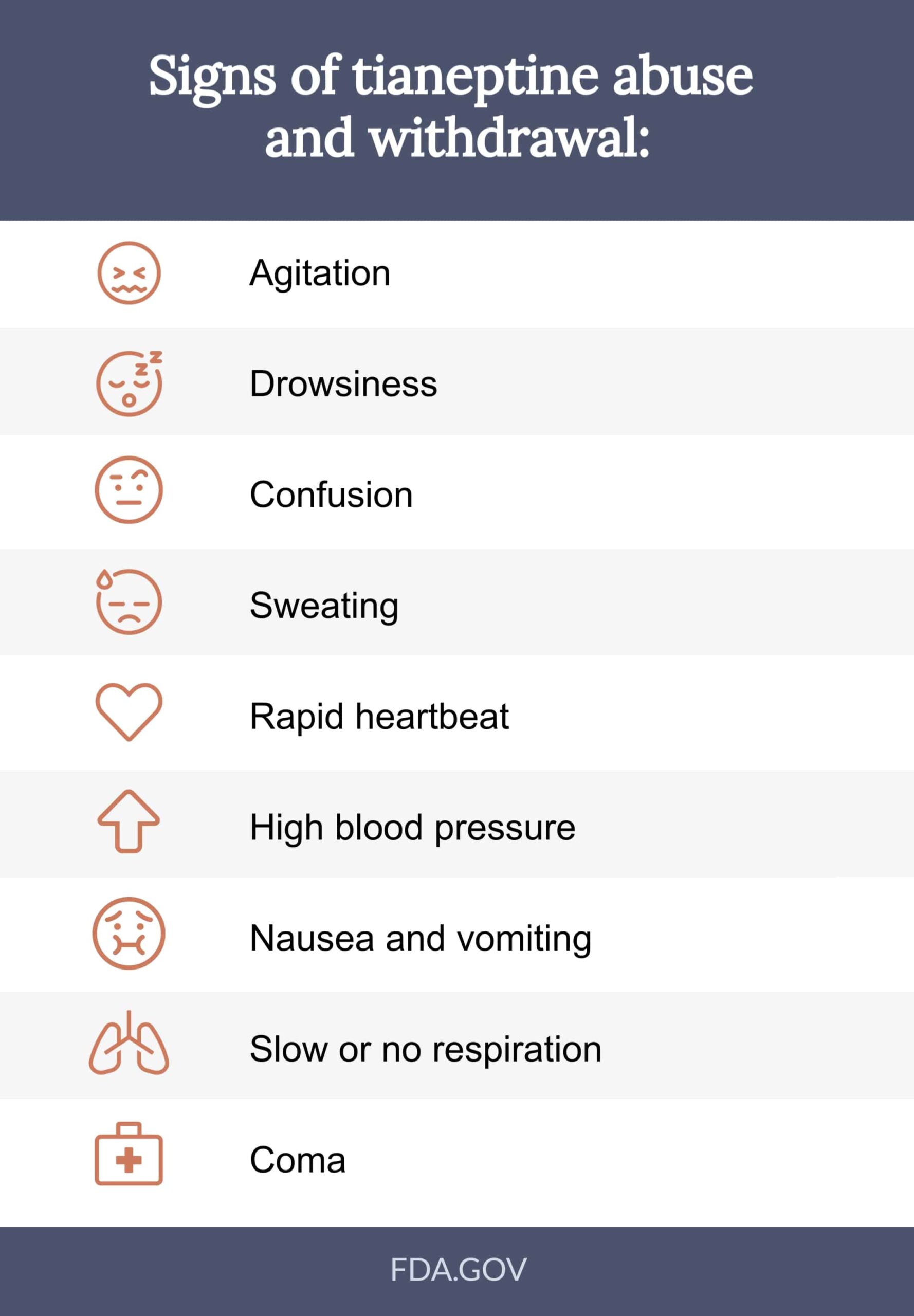By Anna McKenzie
A new drug with opioid-like effects has been drawing attention and concern due to its high potential for abuse. Tianeptine, also called “gas station heroin,” is not yet a controlled substance, but some states have already passed laws to ban it due to its addictive qualities. What is tianeptine? Though it is used in some countries as an ingredient in antidepressant drugs, tianeptine is not approved by the US Food and Drug Administration (FDA) for any medical use, and it has been responsible for a growing number of overdoses and fatalities.
Tianeptine, also called “gas station heroin,“ is not yet a controlled substance, but some states have already passed laws to ban it due to its addictive qualities.
What Is Tianeptine?
Tianeptine is a drug that acts on opioid receptors, producing feelings of euphoria. It’s often described as a tricyclic antidepressant because it increases serotonin uptake in the brain. However, according to Consumer Reports, users have said that tianeptine withdrawal is worse than withdrawal from other opioid drugs, including heroin.
Don’t let the nickname or the easy access fool you into thinking this drug isn’t dangerous. Tianeptine has been dubbed “gas station heroin” because it has been sold as a dietary supplement at convenience stores and gas stations under names like Zaza, Coaxil, Stablon, Pegasus, and, Tianna. It’s also available for sale online. Some people have started taking tianeptine pills without knowing that they are consuming an addictive substance. According to the FDA, some companies are illegally marketing and selling tianeptine products to consumers. What’s worse is they are falsely claiming that tianeptine can “improve brain function and treat anxiety, depression, pain, opioid use disorder, and other conditions.”
Tianeptine Dangers
True to its “gas station heroin” nickname, tianeptine produces a high similar to heroin and other opioids, but the effect is short-lived. Not only that, but withdrawal symptoms can be severe and set in quickly. This leads people to taking higher and higher doses of tianeptine, but as they do, the euphoria is shorter and the withdrawal symptoms become more intense.
Between 2013 to 2015, Consumer Reports indicated that a total of 71 calls related to tianeptine were made to poison control centers; between 2016 to 2020, that number increased 11-fold, totaling 828 calls. The FDA suggests looking for the following symptoms to accompany abuse or withdrawal of tianeptine:

Tianeptine withdrawal symptoms can also mimic those of an opioid overdose, including chills, sweats, aches and pains, and gastrointestinal issues.
The dangers of tianeptine stem from its accessibility, its harmful effects, and its high propensity for abuse. Because it’s marketed as a supplement under a variety of names, it’s difficult for people to know what they’re really consuming. They feel good, temporarily, and then go back for more. Some brands recommend repeated use. Despite these serious issues, there isn’t a national ban on tianeptine, so users don’t feel the threat of legal repercussions like they do with other illicit drugs.
Because tianeptine it’s marketed as a supplement under a variety of names, it’s difficult for people to know what they’re really consuming.
The effects of abuse and withdrawal can be very serious and life-disrupting. Tianeptine’s availability and opioid-like effects have ensnared many former opioid users, who may return to using cheaper drugs like fentanyl, which is incredibly potent and increasingly deadly, reports VICE News. Additionally, tianeptine can cause psychosis, and the Centers for Disease Control and Prevention (CDC) reported that it precipitated a condition called toxic leukoencephalopathy in at least one case, which resulted in the death of the user.
Tianeptine may be seen as safer than street drugs because it’s branded, marketed, and sold in pill form at gas stations and online. But like street drugs, the purity or dosage of tianeptine in each pill can vary depending on the brand or manufacturer. This makes tianeptine toxicity more likely and the effects more unpredictable. Not only that, but tianeptine does not usually show up on standard drug test panels; it requires a separate test. This can make it difficult for abuse to be monitored or for hospitals to determine tianeptine as the cause of your symptoms.
Naloxone can help reverse the symptoms of tianeptine overdose, but only if medical personnel understand that it needs to be administered. If you know that someone who is experiencing rapid heartbeat, drowsiness, agitation, slow breathing, chills, and nausea has been exposed to tianeptine, be sure to mention it to poison control or first responders.
Help for Tianeptine Abuse
Tianeptine is marketed as a supplement, highly addictive and easily accessible. If someone you love is taking tianeptine, intervention is critical. At The Meadows, we can help you address any type of problematic substance use and rediscover a healthy, fulfilling life in recovery. Addiction can happen to anyone, but healing is possible. Our research-backed program will provide you with the therapy, community, and environment you need to find restoration and thrive again. Contact us today to learn more.

